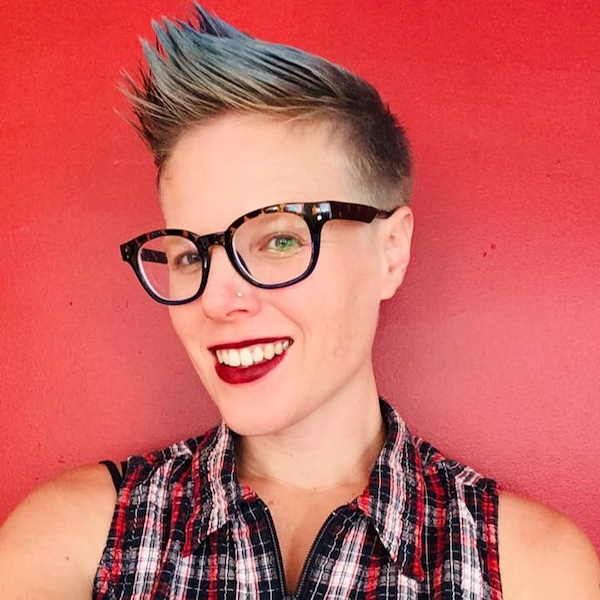Kimberly Rhoten: Supporting Citizens Returning from Incarceration: Reflecting on my 2021 Fellowship with the Boston Mayor’s Office of New Urban Mechanics
By Kimberly Rhoten, JD (they/them) (PhD Candidate, Sociology)
Every year more than 3,000 people return to the City of Boston from prisons and jails, and over 6,000 people are released from the Boston-based South Bay Correctional Facility. Our City’s Office of Returning Citizens provides much needed resources, services, and referrals to get folks back on their feet after the disruption and trauma of incarceration. Most return from incarceration without a permanent place to live, stable income, or even a change of clothes. The City of Boston’s Office of Returning Citizens (“ORC”) acts as a pivotal resource for this population, providing much needed services and referrals. I was fortunate enough to spend my summer working closely with the exceptional staff at the ORC through the Mayor’s Office of New Urban Mechanics (“MONUM”) Summer Fellowship. I was tasked with the daunting but exciting task of reimagining how we might restructure and resource the ORC to better serve Boston’s returning citizens and help them on their path to stability.

City of Boston Mayor’s Office of New Urban Mechanics (MONUM)
My starting point was to look at the ORC’s past in order to strategize for a more effective and efficient future. My first few weeks were spent digging deep into the client services data, identifying areas of successful interventions, as well as service challenges. Notably, I found that the clients served by the ORC had grown by more than 700% since their first year of service in 2017. Over the last four years, the ORC has served more than 1,100 clients and has provided more than 2,700 warm referrals to Boston providers. My research also uncovered that the Office is currently acting as the primary referral and direct services provider for Boston’s returning citizens. Though other providers in the Greater Boston area offer resources and services that may inevitably be relied upon or utilized by returning citizens (such as homelessness services), the ORC offers an exceptional depth and variety of services that are specifically tailored to the unique needs of those returning from prison or jail.
Despite the ORC’s exceptional growth in services over the last four years, my research found that the Office’s budget has stagnated and staffing has not grown to meet the services provided. My next step was to explore what services, funding, and restructuring the ORC could pursue in order to more effectively serve their clients without constraint. To tackle this question, I analyzed the models set by other municipalities’ reentry offices across the country and spoke these programs’ current staff about their own successes and challenges, reviewed data on Boston’s returning citizens chrome the well-known study, “The Boston Reentry Study”, and explored the ORC staff-identified unmet needs of ORC clients.
My research concluded that the ORC would benefit from a significant budget increase, additional employees (particularly additional employment specialists, case managers, and a policy specialist), and expanded services. In my concluding weeks, I drafted a report detailing my research findings as well as specific recommendations for the restructuring and resourcing of this exceptional office. On my last day of my fellowship, I was able to present these recommendations to City personnel, including the ORC office staff themselves. It was a truly wonderful experience.
Working in municipal government was never-boring. There was always engaging work to be a part of and within the same day, I’d get the opportunity to tackle a myriad of projects with a variety of skills. On the same day, I could be on calls with reentry service providers, crunching numbers on client data, and speaking with City officials about novel social science research. I also discovered that the inner workings of municipal government is complex, to say the least! There are many moving parts that must move in order for change to occur. The best part of the job was working closely with the ORC and MONUM staff, who are not only phenomenal at what they do but they do it with such heart. I am absolutely walking away from this experience with a profound respect for those who commit their lives to public service!
Kimberly (they/them) is an attorney, academic, and advocate. As a PhD student at Boston University, their research interests include the legal treatment of non-traditional families and non-monogamous sexualities as well as the structural inequities of mass incarceration. Before starting their PhD, Kimberly worked on a wide variety of social justice and public service projects including housing insecurity, digital privacy, and food access. When they are not on campus, chances are you’ll find Kimberly on a deep-sea fishing boat in Gloucester or exploring the haunted happenings of Salem.
Learn more about IOC fellowship opportunities here.